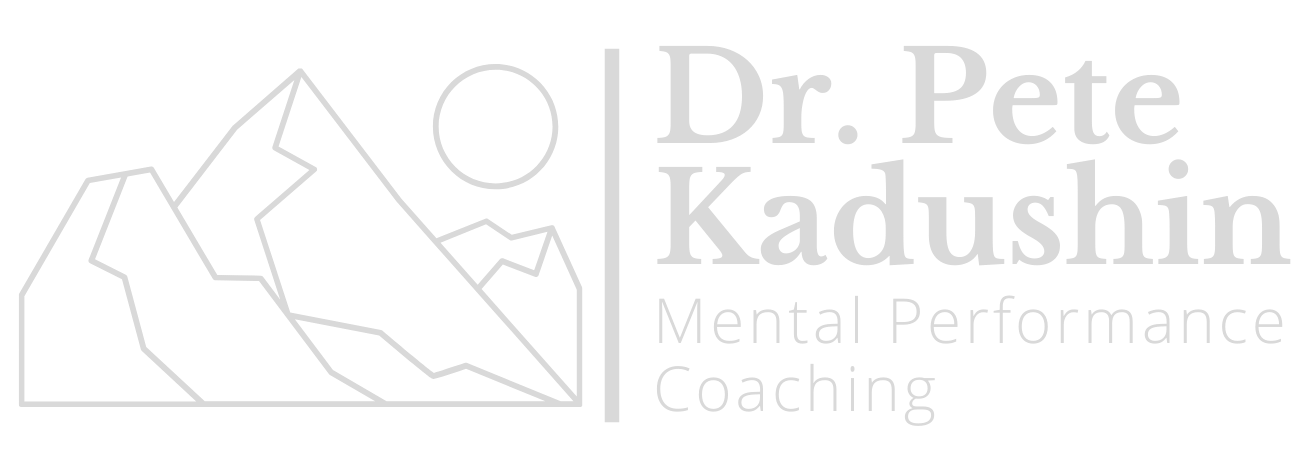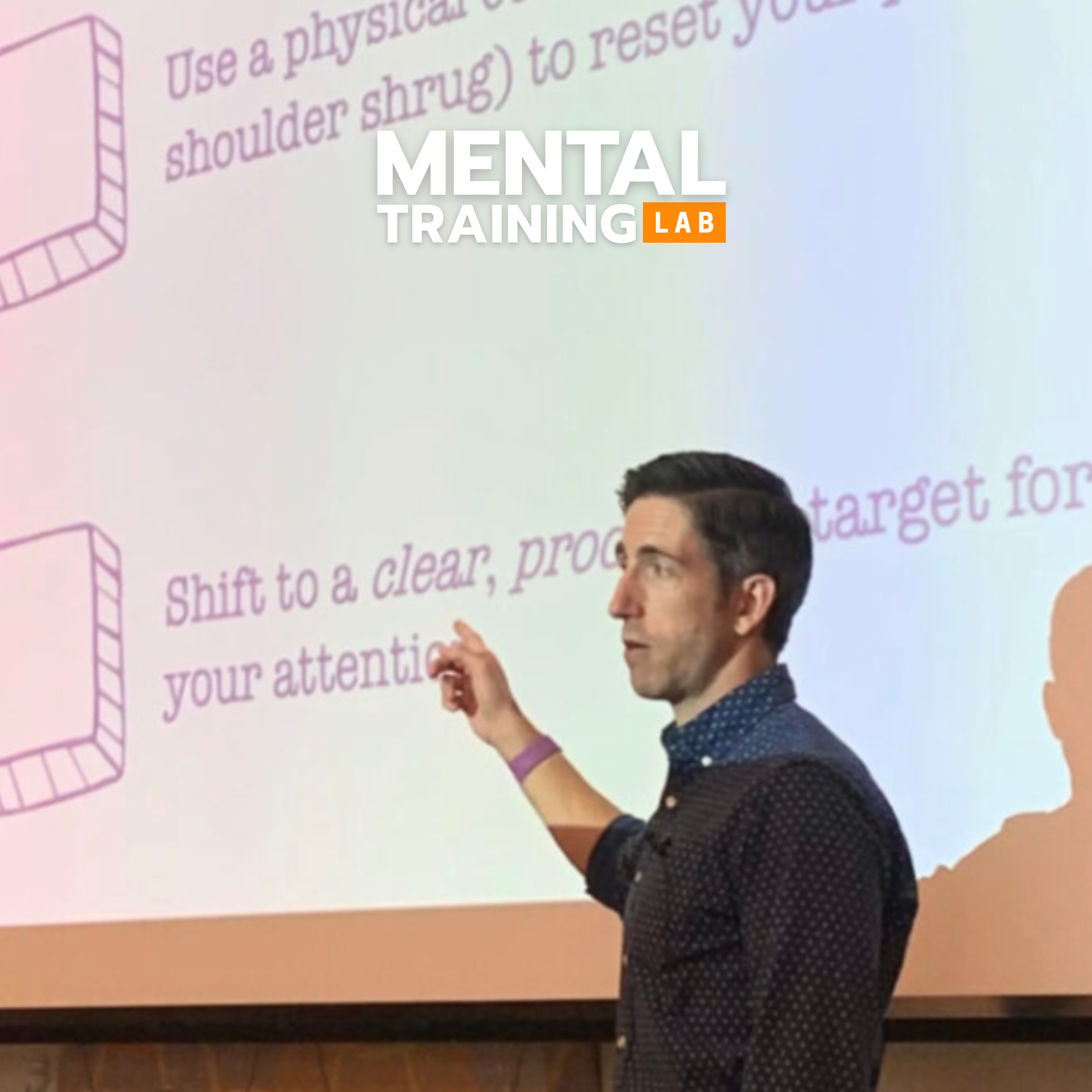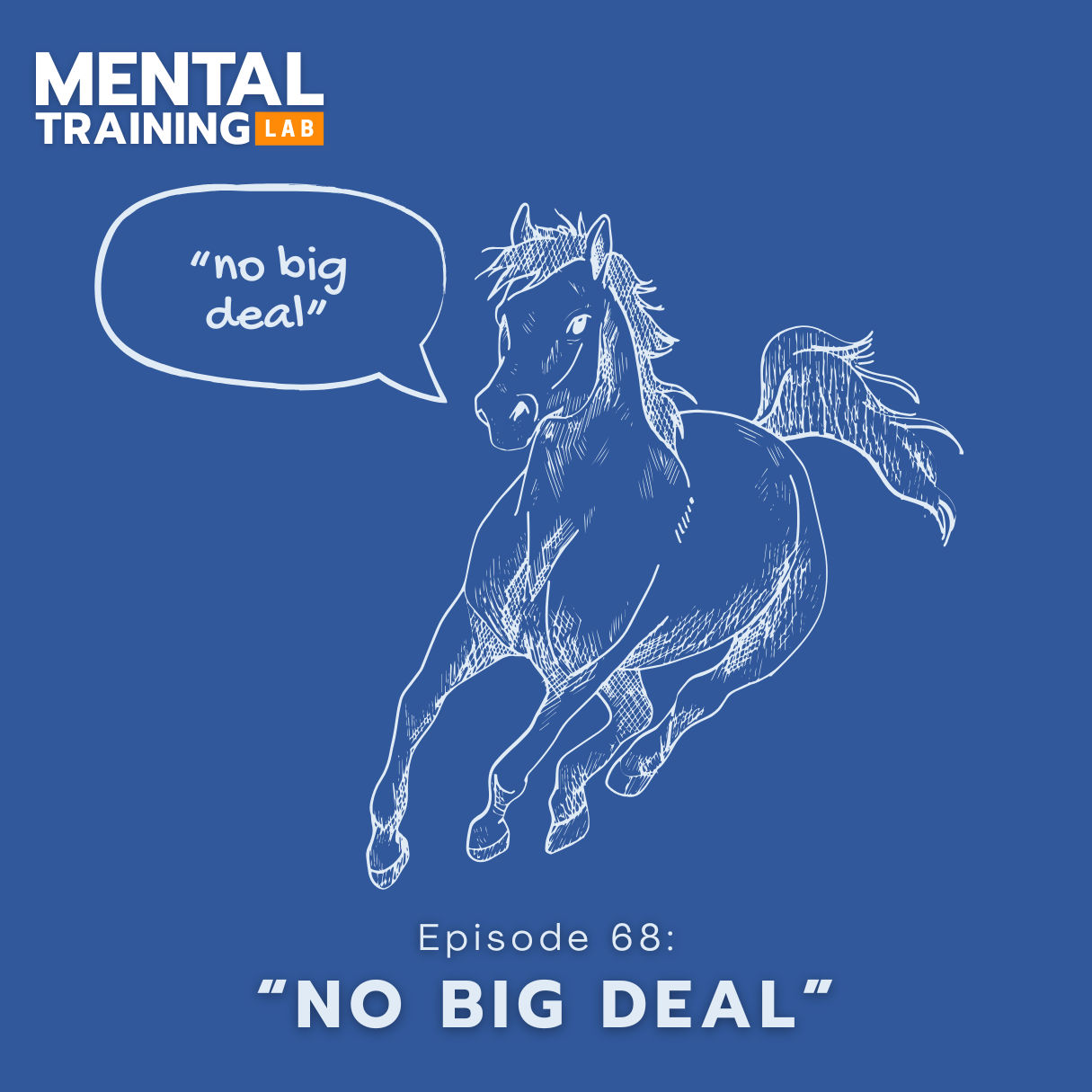Ep. 57: From the Octagon to the Playground: How Environment Shapes Elite Performance with William Massey, PhD
The first time I met Dr. William Massey, it was at an academic conference. The moment he stepped on stage, something was immediately clear: this was not your typical sports psychology researcher. Sure, his presentation was compelling, insightful, and meticulously crafted, but that’s not what stood out first. Will had a serious black eye, fresh enough to spark both my curiosity, and if I’m being honest, a little bit of snark.
As it turned out, the story behind the black eye was just as fascinating as his research. While most academics study sport safely from a distance, William chose a radically different path. He didn’t just observe fighters, he became one. Committing himself to a full UFC-style training camp, William dropped from 235 to 190 pounds, trained three times a day, and fully immersed himself in mixed martial arts (MMA) culture. His research method wasn’t just participant observation; it was total immersion. William didn’t simply gather data; he earned genuine street cred within the MMA community.
Today, Will is widely recognized for his innovative qualitative research in sports psychology. His work has since extended beyond MMA, covering diverse domains from playground dynamics in elementary schools to high-pressure corporate leadership environments. But regardless of the setting, his findings consistently underscore one powerful theme: environments profoundly shape human performance.
Diving Into the Octagon: Lessons from MMA
Massey’s intense approach provided him unparalleled insight into the MMA world. During our conversation, he shared the unique lessons learned from his fight camp experience. One significant takeaway was the power of the social environment in shaping behavior and performance. Fighters didn’t merely rely on physical strength or technical skill; success came from an ecosystem of trust, emotional awareness, and clear roles defined by coaches and teammates.
Will explained how this fighter-centric environment allowed for clarity under extreme pressure, clarity that translates into critical performance improvements. Things that undermined that clarity - misaligned expectations, unclear communication, or a lack of emotional trust weren’t just minor issues; they could completely derail a fighter’s performance.
From the Octagon to the Playground
Interestingly, Massey applied similar observational methods to study playground dynamics among schoolchildren. Just as in elite athletic environments, the environment on the playground influenced behavior significantly. He noted that clear rules, mutual trust, and emotional safety were essential for children’s positive interactions and meaningful play.
What emerged was a powerful parallel: whether on the mat or on a playground, success hinged not merely on individual skill or ambition, but on environmental factors that foster trust, clarity, and emotional safety.
Lessons in Leadership and Performance
William’s research didn’t stop with sport or school. It extended into the corporate world, emphasizing leadership dynamics and high-stakes decision-making. His findings, not surprisingly, pointed to three pivotal factors: trust, clarity, and emotional awareness.
Trust, he discovered, wasn’t just about reliability, it was about leaders consistently creating environments where team members felt psychologically safe. Clarity meant explicitly defining roles, expectations, and consequences, reducing ambiguity that could otherwise sabotage performance. Emotional awareness, perhaps most critical, involved leaders understanding their own emotional responses, managing stress, and fostering environments where team members felt seen, heard, and respected.
Three Actionable Steps to Enhance Your Performance Environment
Drawing from Dr. Massey’s compelling insights, here are three practical steps you can implement immediately to optimize your environment and elevate your performance:
1. Prioritize Trust Through Consistent Communication
Trust isn’t built overnight, it’s the cumulative result of consistent, transparent communication. Leaders and performers alike must commit to honesty, especially when it’s uncomfortable. Regular check-ins, openly addressing concerns, and creating opportunities for feedback can foster a trustworthy environment.
Action Steps:
Schedule weekly one-on-one meetings to check in with your team or coach.
Provide clear, honest feedback regularly, focusing on growth rather than criticism.
Encourage openness by sharing your own challenges and vulnerabilities.
2. Create Clarity by Defining Roles and Expectations
Ambiguity is the enemy of effective performance, especially under pressure. Clarity comes from explicitly defining roles, expectations, and outcomes. Massey’s research with fighters demonstrated the power of clear role definitions in preventing confusion and enabling decisive action during critical moments.
Action Steps:
Clearly outline roles and responsibilities for yourself and your team.
Regularly revisit and update these roles as situations evolve.
Ensure everyone understands how their individual role contributes to the broader goals.
3. Develop Emotional Awareness for Better Decision-Making
Emotional awareness isn’t about eliminating negative emotions; it’s about recognizing them, understanding their root causes, and responding thoughtfully. Leaders who practice emotional awareness make better decisions, especially under pressure, and create environments where people feel valued and supported.
Action Steps:
Practice daily mindfulness or journaling to become more aware of your emotional patterns.
Identify emotional triggers and develop coping strategies for stressful situations.
Foster an open dialogue about emotional wellness within your team or training environment.
The Intersection of Research and Real-World Impact
William Massey’s work is a powerful reminder that high performance isn’t solely about talent, determination, or skill. It’s deeply influenced by the environments we cultivate; environments shaped by trust, clarity, and emotional intelligence.
His immersive research methods highlight a broader truth applicable to athletes, corporate leaders, educators, and anyone interested in achieving peak performance: understanding the impact of your environment is not just beneficial, it’s essential.
So as you approach your own performance goals, whether in sport, business, or life, take a moment to evaluate your surroundings. Are you fostering an environment of trust? Have you provided clear, consistent communication? Are you aware of your emotions and those of your team?
Taking proactive steps in these areas could be the difference between good performance and extraordinary results.
Will’s unique journey, from the MMA octagon to elementary school playgrounds, corporate boardrooms, and academic stages, underscores one powerful message: the environments we create have the profound ability to unlock human potential.
Now, it’s your turn. Take these insights, put them into practice, and see how they can transform your performance, leadership, and life.




